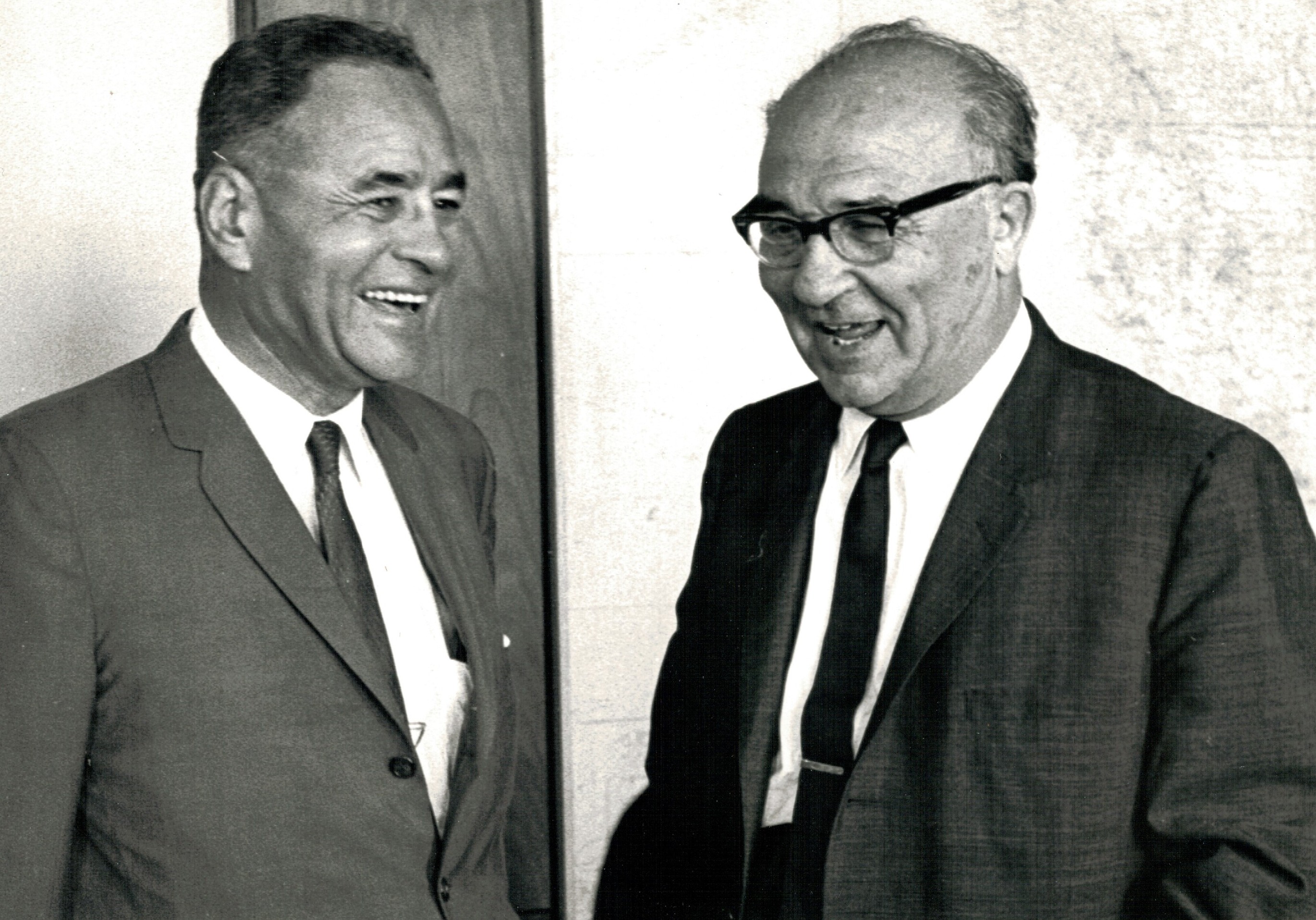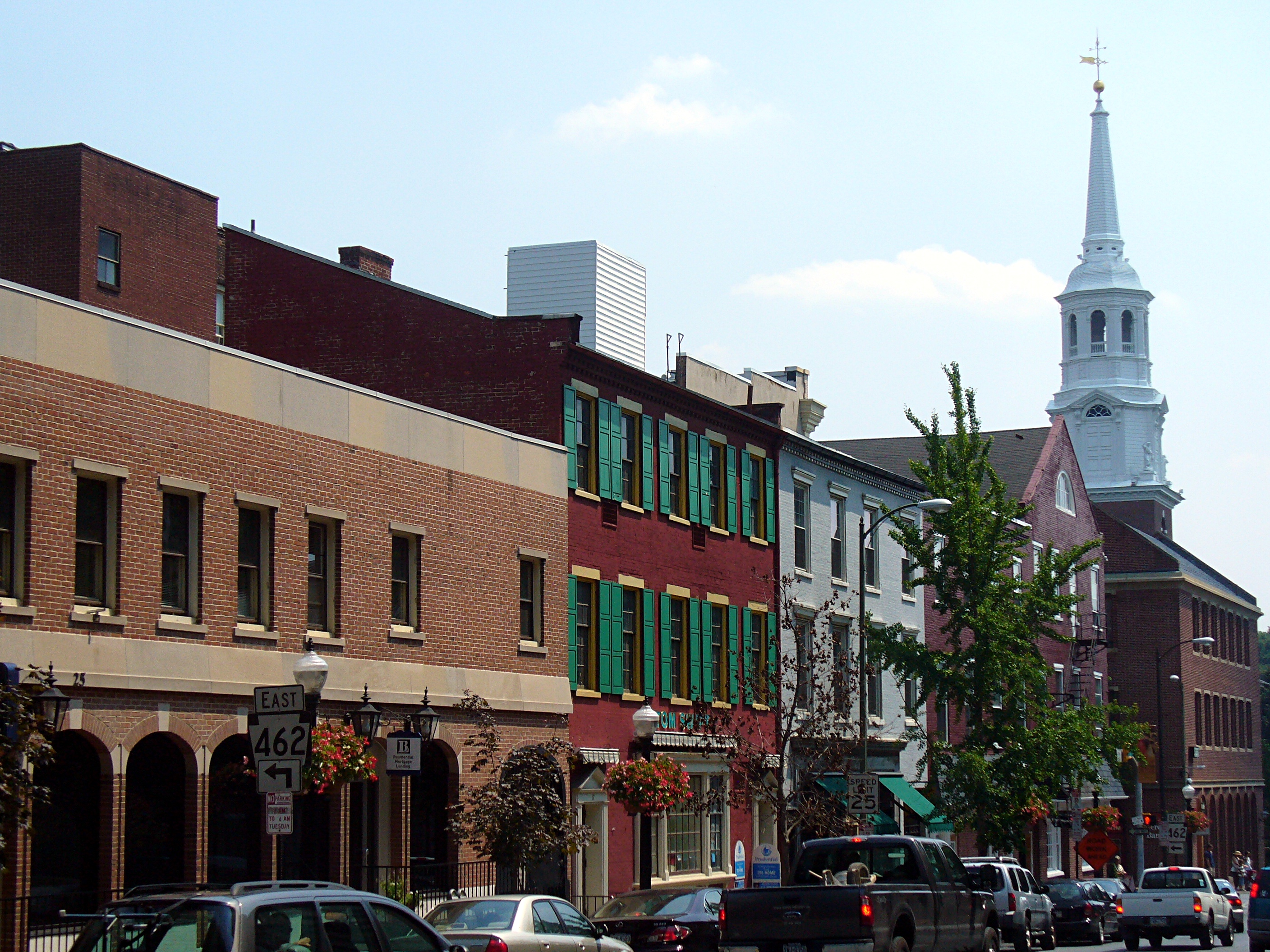|
Aaronsburg, Centre County, Pennsylvania
Aaronsburg is a census-designated place (CDP) in Centre County, Pennsylvania, United States. It is part of the State College, Pennsylvania Metropolitan Statistical Area. The population was 613 at the 2010 census. History Aaronsburg was founded in 1786 by Aaron Levy, of which the town is named for him. It is the first town in Pennsylvania (and possibly in the United States) laid out by and named after a Jew. He laid out the town of right in the geographic center of the state, with hopes of it becoming a major settlement. Its orderly planned and aligned streets were designed that the town might one day be the county seat. This, however, never occurred due to the lack of water. The current county seat is Bellefonte. Levy was a prominent Jewish merchant who immigrated to Pennsylvania from Amsterdam sometime between 1760 and 1770 to trade with the native peoples and furnished supplies to the proprietary government. After Treaty of Fort Stanwix was signed in 1768, he went west in the ... [...More Info...] [...Related Items...] OR: [Wikipedia] [Google] [Baidu] |
Census-designated Place
A census-designated place (CDP) is a concentration of population defined by the United States Census Bureau for statistical purposes only. CDPs have been used in each decennial census since 1980 as the counterparts of incorporated places, such as self-governing cities, towns, and villages, for the purposes of gathering and correlating statistical data. CDPs are populated areas that generally include one officially designated but currently unincorporated community, for which the CDP is named, plus surrounding inhabited countryside of varying dimensions and, occasionally, other, smaller unincorporated communities as well. CDPs include small rural communities, edge cities, colonias located along the Mexico–United States border, and unincorporated resort and retirement communities and their environs. The boundaries of any CDP may change from decade to decade, and the Census Bureau may de-establish a CDP after a period of study, then re-establish it some decades later. Mo ... [...More Info...] [...Related Items...] OR: [Wikipedia] [Google] [Baidu] |
Bellefonte, Pennsylvania
Bellefonte is a borough in, and the county seat of, Centre County in the U.S. state of Pennsylvania. It is approximately twelve miles northeast of State College and is part of the State College, Pennsylvania Metropolitan Statistical Area. The borough population was 6,187 at the 2010 census. It houses the Centre County Courthouse, located downtown on the diamond. Bellefonte has also been home to five of Pennsylvania's governors, as well as two other governors. All seven are commemorated in a monument located at Talleyrand Park. The town features many examples of Victorian architecture. It is also home to the natural spring from which the town derives its name ("la belle fonte", bestowed by Charles Maurice de Talleyrand-Périgord during a land-speculation visit to central Pennsylvania in the 1790s). However, the spring, which serves as the town's water supply, has been covered to comply with DEP water purity laws. The early development of Bellefonte had been as a "natural tow ... [...More Info...] [...Related Items...] OR: [Wikipedia] [Google] [Baidu] |
Ronald Reagan
Ronald Wilson Reagan ( ; February 6, 1911June 5, 2004) was an American politician, actor, and union leader who served as the 40th president of the United States from 1981 to 1989. He also served as the 33rd governor of California from 1967 to 1975, after having a career in entertainment. Reagan was born in Tampico, Illinois. He graduated from Eureka College in 1932 and began to work as a sports announcer in Iowa. In 1937, Reagan moved to California, where he found work as a film actor. From 1947 to 1952, Reagan served as the president of the Screen Actors Guild, working to root out alleged communist influence within it. In the 1950s, he moved to a career in television and became a spokesman for General Electric. From 1959 to 1960, he again served as the guild's president. In 1964, his speech " A Time for Choosing" earned him national attention as a new conservative figure. Building a network of supporters, Reagan was elected governor of California in 1966. During his g ... [...More Info...] [...Related Items...] OR: [Wikipedia] [Google] [Baidu] |
Cornel Wilde
Cornel Wilde (born Kornél Lajos Weisz; October 13, 1912 – October 16, 1989) was a Hungarian-American actor and filmmaker. Wilde's acting career began in 1935, when he made his debut on Broadway. In 1936 he began making small, uncredited appearances in films. By the 1940s he had signed a contract with 20th Century Fox, and by the mid-1940s he was a major leading man. He was nominated for the Academy Award for Best Actor for his performance in 1945's ''A Song to Remember''. In the 1950s he moved to writing, producing and directing films, and still continued his career as an actor. He also went into songwriting during his career. Early life Wilde was born in 1912 in Privigye, Kingdom of Hungary (now Prievidza, Slovakia),''List or Manifest of Alien Passengers for the United States, S.S. Noordam, Passengers Sailing from Rotterdam, May 4, 1920'', New York Passenger Lists, 1820–1957. iProvo, Utah, 2010. although his year and place of birth are usually and inaccurately given as ... [...More Info...] [...Related Items...] OR: [Wikipedia] [Google] [Baidu] |
Ralph Bunche
Ralph Johnson Bunche (; August 7, 1904 – December 9, 1971) was an American political scientist, diplomat, and leading actor in the mid-20th-century decolonization process and US civil rights movement, who received the 1950 Nobel Peace Prize for his late 1940s mediation in Israel. Among black Nobel laureates he is the first African American and first person of African descent to be awarded a Nobel Prize. He was involved in the formation and early administration of the United Nations, and played a major role in both the decolonization process and numerous UN peacekeeping operations. Bunche served on the US delegation to both the Dumbarton Oaks Conference in 1944 and United Nations Conference on International Organization in 1945 that drafted the UN charter. He then served on the American delegation to the first session of the United Nations General Assembly in 1946 and joined the UN as head of the Trusteeship Department, beginning a long series of troubleshooting roles and r ... [...More Info...] [...Related Items...] OR: [Wikipedia] [Google] [Baidu] |
Eucharist
The Eucharist (; from Greek , , ), also known as Holy Communion and the Lord's Supper, is a Christian rite that is considered a sacrament in most churches, and as an ordinance in others. According to the New Testament, the rite was instituted by Jesus Christ during the Last Supper; giving his disciples bread and wine during a Passover meal, he commanded them to "do this in memory of me" while referring to the bread as "my body" and the cup of wine as "the blood of my covenant, which is poured out for many". The elements of the Eucharist, sacramental bread ( leavened or unleavened) and wine (or non-alcoholic grape juice), are consecrated on an altar or a communion table and consumed thereafter, usually on Sundays. Communicants, those who consume the elements, may speak of "receiving the Eucharist" as well as "celebrating the Eucharist". Christians generally recognize a special presence of Christ in this rite, though they differ about exactly how, where, and when Chri ... [...More Info...] [...Related Items...] OR: [Wikipedia] [Google] [Baidu] |
Pewter
Pewter () is a malleable metal alloy consisting of tin (85–99%), antimony (approximately 5–10%), copper (2%), bismuth, and sometimes silver. Copper and antimony (and in antiquity lead) act as hardeners, but lead may be used in lower grades of pewter, imparting a bluish tint. Pewter has a low melting point, around , depending on the exact mixture of metals. The word ''pewter'' is probably a variation of the word '' spelter'', a term for zinc alloys (originally a colloquial name for zinc). History Pewter was first used around the beginning of the Bronze Age in the Near East. The earliest known piece of pewter was found in an Egyptian tomb, c. 1450 BC, but it is unlikely that this was the first use of the material. Pewter was used for decorative metal items and tableware in ancient times by the Egyptians and later the Romans, and came into extensive use in Europe from the Middle Ages until the various developments in pottery and glass-making during the 18th and 19th centur ... [...More Info...] [...Related Items...] OR: [Wikipedia] [Google] [Baidu] |
Philadelphia
Philadelphia, often called Philly, is the largest city in the Commonwealth of Pennsylvania, the sixth-largest city in the U.S., the second-largest city in both the Northeast megalopolis and Mid-Atlantic regions after New York City. Since 1854, the city has been coextensive with Philadelphia County, the most populous county in Pennsylvania and the urban core of the Delaware Valley, the nation's seventh-largest and one of world's largest metropolitan regions, with 6.245 million residents . The city's population at the 2020 census was 1,603,797, and over 56 million people live within of Philadelphia. Philadelphia was founded in 1682 by William Penn, an English Quaker. The city served as capital of the Pennsylvania Colony during the British colonial era and went on to play a historic and vital role as the central meeting place for the nation's founding fathers whose plans and actions in Philadelphia ultimately inspired the American Revolution and the nation's inde ... [...More Info...] [...Related Items...] OR: [Wikipedia] [Google] [Baidu] |
Continental Congress
The Continental Congress was a series of legislative bodies, with some executive function, for thirteen of Britain's colonies in North America, and the newly declared United States just before, during, and after the American Revolutionary War. The term "Continental Congress" most specifically refers to the First and Second Congresses of 1774–1781 and, at the time, was also used to refer to the Congress of the Confederation of 1781–1789, which operated as the first national government of the United States until being replaced under the Constitution of the United States. Thus, the term covers the three congressional bodies of the Thirteen Colonies and the new United States that met between 1774 and 1789. The First Continental Congress was called in 1774 in response to growing tensions between the colonies culminating in the passage of the Intolerable Acts by the British Parliament. It met for about six weeks and sought to repair the fraying relationship between Britain an ... [...More Info...] [...Related Items...] OR: [Wikipedia] [Google] [Baidu] |
Lancaster, Pennsylvania
Lancaster, ( ; pdc, Lengeschder) is a city in and the county seat of Lancaster County, Pennsylvania. It is one of the oldest inland cities in the United States. With a population at the 2020 census of 58,039, it ranks 11th in population among Pennsylvania's municipalities. The Lancaster metropolitan area population is 507,766, making it the 104th-largest metropolitan area in the U.S. and second-largest in the South Central Pennsylvania area. The city's primary industries include healthcare, tourism, public administration, manufacturing, and both professional and semi-professional services. Lancaster is a hub of Pennsylvania's Dutch Country. Lancaster is located southwest of Allentown and west of Philadelphia. History Originally called Hickory Town, the city was renamed after the English city of Lancaster by native John Wright. Its symbol, the red rose, is from the House of Lancaster. Lancaster was part of the 1681 Penn's Woods Charter of William Penn, and was laid ... [...More Info...] [...Related Items...] OR: [Wikipedia] [Google] [Baidu] |
American Revolutionary War
The American Revolutionary War (April 19, 1775 – September 3, 1783), also known as the Revolutionary War or American War of Independence, was a major war of the American Revolution. Widely considered as the war that secured the independence of the United States, fighting began on April 19, 1775, followed by the Lee Resolution on July 2, 1776, and the Declaration of Independence on July 4, 1776. The American Patriots were supported by the Kingdom of France and, to a lesser extent, the Dutch Republic and the Spanish Empire, in a conflict taking place in North America, the Caribbean, and the Atlantic Ocean. Established by royal charter in the 17th and 18th centuries, the American colonies were largely autonomous in domestic affairs and commercially prosperous, trading with Britain and its Caribbean colonies, as well as other European powers via their Caribbean entrepôts. After British victory over the French in the Seven Years' War in 1763, tensions between the motherla ... [...More Info...] [...Related Items...] OR: [Wikipedia] [Google] [Baidu] |

.jpg)





